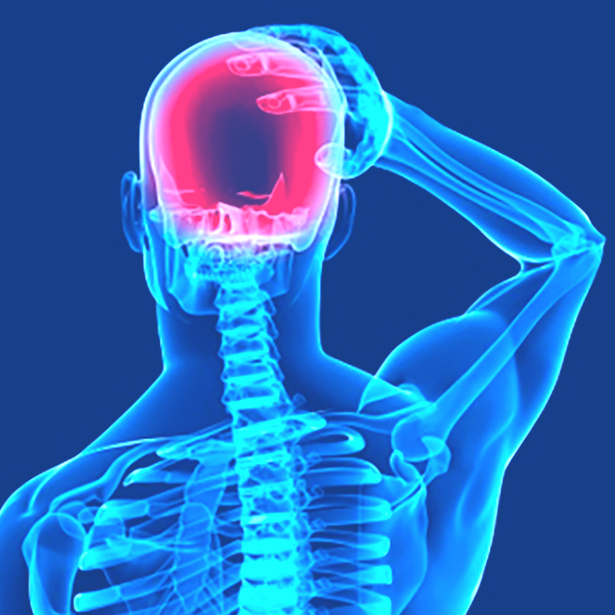
Our treatments provide pain relief for many varing conditions, including
Migraine Headaches
Migraine Headaches with Visual Distortion
Myogenic Headaches – Headaches caused by strained or irritated neck muscles
Vertebrogenic Headaches – Headaches caused by irritated or dysfunctional vertebrae
Myogenic Headaches
If you have headaches that don’t just hurt your head, but also involve pain or lack of movement in your neck, you may be experiencing myogenic headaches. Myogenic headaches are one of two kinds of headaches that originate in the neck, the other being vertebrogenic. (When strained or irritated neck muscles cause the pain, the headaches are myogenic. When dysfunctional or irritated vertebrae cause the pain, the headaches are vertebrogenic.)
What are the symptoms of Myogenic Headaches?
People with myogenic headaches often feel mild to severe discomfort or pain on one side of their head, although this pain can occur on both sides. The pain usually starts in the neck but can also start in tight muscles at the back of the head and even in muscles that work the jaw. From either of these places, the pain can spread to the temples and possibly a combination of the ears, eyes and top of the head.
The pain of a myogenic headache can be severe, although it is rarely accompanied by extreme migraine symptoms such as nausea or sensitivity to light and sound. The duration of pain varies from episode to episode and can last anywhere from a few hours to a couple of weeks.
If you have a myogenic headache, you may find that awkward or uncomfortable postures and certain neck movements, like turning or bending, can make the pain worse. The muscles around your neck may also be tight and abnormally tender, and your neck may resist certain movements and be unable to move through its normal range of motion.
What are the causes of Myogenic Headaches?
Because neck muscle stiffness or tightness can lead to myogenic headaches, a variety of events that affect the neck can cause the condition. These include trauma to the head and neck from injuries such as whiplash; poor posture, which increases stress on muscles; and occupational or recreational stresses, such as extended phone use and other activities that keep the neck in awkward positions for prolonged periods.
What are the treatments for Myogenic Headaches?
Your healthcare practitioner may be able to reduce the frequency, duration and intensity of your headaches once the cause is determined.
Treatments such as chiropractic adjustments, dry needling therapy or neuromuscular therapy can help to reduce tension around the body, which in turn can reduce discomfort and provide pain relief for individuals suffering from myogenic headaches.
If you suffer from headaches and fell that you could benefit from one of our treatments, or if you would like more information on headaches, please do not hesitate to contact us and arrange an appointment.
